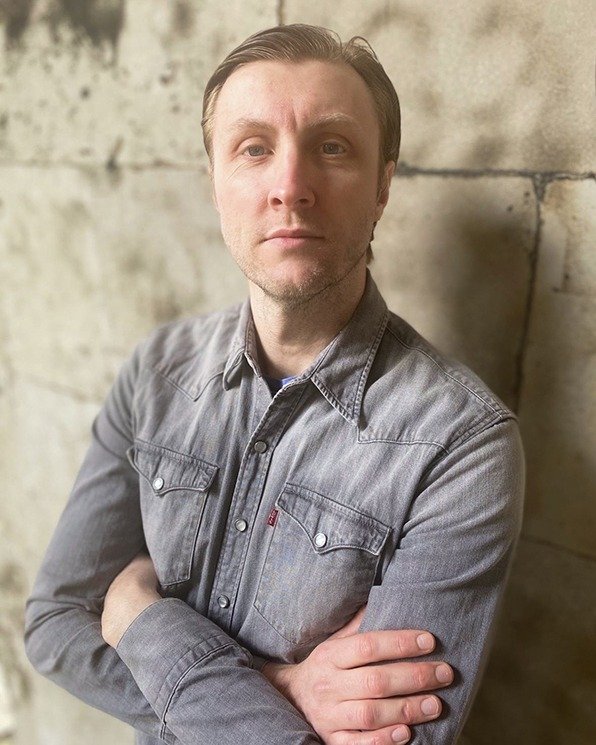‘I was expelled as a therapist for my gender critical views’

A British man is going to court to fight his expulsion from a university course – because he believes therapists are being trained to be “nodding dogs” who are no longer allowed to properly discuss gender dysphoria with clients.
James Esses discovered his true passion by volunteering at the children’s charity Childline.
Helping unhappy kids in need of guidance and support gave him a sense of purpose he had never encountered, and he wanted to make it his life.
He should be ensconced in his new career. But he’s not – because of his gender critical views.
Esses, 29 and based in London, was on the verge of opening a therapy practice after completing three of five years’ training at the Metanoia Institute in Ealing, West London, where he was studying for a Masters in psychotherapy.
“As far as I was aware, the course was going very well. I had just been signed off by the institute to set up my own private therapy practice, so they clearly had faith in my abilities,” he explained.
“Then one day, I received an email and my entire life plans went up in smoke. Clearly, it boils down to my belief about sex and gender, and also treatment, particularly of children with gender dysphoria.”
Esses had filed a public petition to the UK government to safeguard exploratory therapy for children with gender dysphoria. It attracted more than 11,000 signatures.
The aim was to protect the belief that therapists should be free to discuss all potential outcomes with children struggling with gender dysphoria without fear of falling foul of proposed legislation banning conversion therapy. The government responded to his petition with a statement from the Equalities Office.
He also did media appearances about his stance and, in mid-May, the institute got in touch. Esses recalled, “It was an email saying they had received a few complaints about me and my petition and the associated publicity, and they wanted to have an informal chat. They said it was nothing to be worried about. They didn’t detail the complaints and they didn’t tell me who it was that complained.”
Before he could have the informal meeting, the matter was taken out of his hands. He continued, “Another email dropped into my inbox titled Termination of Contract and that was the email that told me that I was being immediately expelled. There was never a single conversation between myself and the institute before they expelled me.”
Ten days later, Childline also gave him the same treatment. “It was a particularly bruising time for me. I had been there almost six years and it was an extremely important part of my life and I was forever receiving positive feedback about it. It was somewhere I wanted to continue volunteering until the day I died.”
Esses was shell-shocked, but gathered himself and, as befits a man who chooses his words carefully and does not appear to make uncalculated judgments, spent some time processing what had happened. The nature of his dismissal and the fact that Metanoia publicised it on social media means he has concerns about his future.
“Neither the teachers nor the students seem safe from cancel culture,” Esses said. “Part of the difficulty is I feel my reputation has been potentially irreparably damaged by what’s happened. The therapy community is quite a small community, everyone speaks to each other.”
Now Esses has decided to clear his name by taking legal action against Metanoia over his expulsion. He is also taking accreditation body the UK Council for Psychotherapy (UKCP) to court, as he was informed of training they ran where his case was discussed and “negative, false and damaging remarks” were allegedly made about him.
So far, he’s crowdfunded almost £80,000 to help fight his case. He said, “I’ve got no regrets over anything I’ve said and I’ve got no regrets over fighting this in court, as it’s the only option I’ve been left with unfortunately.”
“Often I get accused of being funded by large anti-trans organisations – well, the proof is on that [crowdfunding] page. The £80,000 is [made up of] lots and lots of small donations from hard-working people who very generously parted with their hard-earned money for a cause they care deeply about, as this touches on a lot of issues: free speech, education, safeguarding children, women’s rights, the gay community … That’s why there is such a strength of feeling about this.”
There’s a preliminary hearing on January 4, when a trial date will be scheduled. Esses says he is not only fighting for his livelihood, but to address what he says is a major issue across the therapy industry.
He explained, “My experience is it’s one of the most shut down professions in willing to engage in a respectful dialogue. And that’s all I ever wanted actually, to have a conversation about this.”
“Gender dysphoria is a mental health condition and what’s required, in this country at least, is to be diagnosed with it if you want to medically or legally transition. These things are intertwined together and I felt, and my colleagues feel, that it’s our role as therapeutic practitioners to have a conversation about this; what’s in the best interests of each individual client that comes before us?”
Echoing others who complain of feeling forced to follow ‘trans ideology,’ Esses recounts what was happening on his course. “I very much got the impression we were basically being told you must be willing to accept this idea of sex being on a spectrum and complete gender fluidity. When myself or some of my peers tried to raise other ideas into the mix, the teaching staff didn’t seem particularly keen to engage with us.”
The issue in Britain is driven by the Memorandum of Understanding on Conversion Therapy, which the NHS and most therapy accreditation bodies endorse. It states conversion therapy “attempts to bring about a change of sexual orientation or gender identity, or seeks to suppress an individual’s expression of sexual orientation or gender identity on that basis.”
What Esses feels is misleading is the notion that to question or probe is to seek to suppress.
He said, “There’s a concern if a therapist didn’t simply affirm a client towards transitioning, they could be hauled in front of a disciplinary committee for example.”
Children and young people may have gender dysphoria, but it doesn’t mean that taking drugs or having irreversible surgery is in their best interests. That’s proven by the rising number of detrans people who regret undergoing procedures as their issues remain unresolved.
Statistics on detransitioning are estimated to be underplayed, as many individuals tell of not being tracked and say they are unrecorded cases. As an example, the detransition subreddit alone has 23,800 verified members.
“Therapists are not there to be nodding dogs. And treating people with respect and of course being non-judgmental … those are crucial aspects of therapy and I’ve never called for anything other than that and neither have my colleagues,” said Esses.
“But it is our duty to explore things with our clients and not simply affirm them, particularly when it comes to thoughts or feelings that might cause them a sense of unease,” he continued. “I have a lot of parents reaching out to me and my group asking if there are therapists out there who will not simply affirm transitioning. They are not being met with neutral therapists who don’t have a predetermined outcome.”
One key facet of the issue is Britain’s proposed ban on gender conversion therapy. Many feel the planned legislation will result in anyone who doesn’t affirm transition falling foul of it.
Esses said, “Banning it is the right thing to do because conversion therapy as people traditionally think of it is an absolutely disgusting and abhorrent practice, and can cause people a lot of damage. Our concern is the language will end up being so vague or ambiguous that it could potentially criminalise therapists who don’t simply affirm transitioning their clients.”
He added, “Most conversion therapy practices are already thankfully criminalised under existing legislation, [and] anything involving sexual or physical violence is already caught by existing legislation.”
“It’s about the nuance. What we’re seeing is one piece of legislation designed to capture both sexual orientation and gender identity. These two things tend to get thrown together but, if we step back, we realise they are vastly different from each other.”
Legislation that blurs these lines has been introduced in various places. Canada recently approved a new law, joining the likes of Malta, Germany, France, and Australia.
Esses, a former criminal defence barrister and current civil servant, can’t find another course that allows him to work at the same time, so now has to wait until his case is resolved. He explained, “To carry on training, I would have to quit my full-time job and that’s not financially viable. I have to pay the bills and keep a roof over my head.”
“Therapy in this country is not a regulated profession by law, so you don’t need to have done training, and anyone can technically actually put a sign above their door and call themselves a therapist.”
But he continued, “I started down the path of this training … [and] ideally once this court case concludes I’d like to be able to carry on with it because my goal is still to become a therapist and still to help people. It’s what I found to be the most fulfilling thing in my life and it’s how I want to spend my life.”
While buoyed by public support, Esses also receives abuse and is attacked for being transphobic, giving him plenty of motivation to set the record straight. He said, “I’m happy to debate or discuss or engage in a dialogue with absolutely anyone, even if we are vehemently opposed to each other’s views. I will still treat people with respect and courtesy, but what we find is, rather than engage in that dialogue, people are far happier to go behind someone’s back and try and ruin their reputation or their livelihood.”
“It’s one of the great shames of the times we’re living in.”
The statements, views and opinions expressed in this column are solely those of the author and do not necessarily represent those of RT.

















